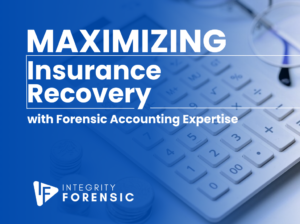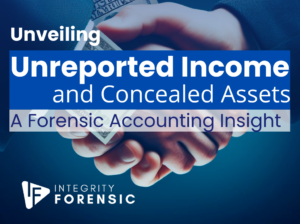In the world of forensic accounting, where financial transparency and integrity are paramount, the WEX scandal stands as a stark reminder of the importance of robust internal controls and diligent investigative practices. This blog post delves into the captivating case of WEX Inc., a financial technology service provider based in Portland, Maine, and explores how forensic accounting techniques were deployed to uncover internal accounting control failures and accounting errors at its Brazilian subsidiary. Join us as we embark on a journey through the intricacies of the WEX scandal and witness the power of forensic accounting techniques in action.
The WEX Scandal Unveiled
In December 2021, the Securities and Exchange Commission (SEC) charged WEX Inc. with violating the reporting, books and records, and internal accounting control provisions of the federal securities laws. The SEC’s investigation revealed that WEX’s net income, under U.S. Generally Accepted Accounting Principles (GAAP), was significantly reduced by 61.2% in the fiscal year 2016 due to accounting errors at its Brazilian subsidiary, WEX Brazil. These errors were a direct consequence of inadequate internal accounting controls within the company.
The Role of Forensic Accounting Techniques
Forensic accountants played a pivotal role in uncovering the accounting errors and internal control deficiencies at WEX Inc. Through meticulous analysis and examination of financial records, these experts identified significant deficiencies in WEX’s Internal Control Over Financial Reporting (ICFR) relating to accounting errors at WEX Brazil. These findings highlight the crucial nature of forensic accounting techniques in identifying financial irregularities and facilitating robust internal control systems.
Banking on Forensic Accounting Methodology
Forensic accountants employed various forensic accounting methodology techniques to investigate the WEX scandal. Two notable techniques utilized were the bank deposits method and the asset method, both instrumental in revealing hidden assets and estimating the extent of undisclosed income.
The bank deposits method played a key role in reconstructing income by analyzing bank deposits, canceled checks, currency transactions, and accounting for cash payments from undeposited currency receipts and nonincome cash sources. By deducting funds from known sources, forensic accountants could ascertain the total funds from unknown sources, ultimately shedding light on potential unreported income.
Similarly, the asset method, also known as the net worth analysis method, allowed forensic accountants to estimate an individual’s net worth by examining bank and brokerage statements, real estate records, loan and credit card applications, and other pertinent documents. By comparing the increase in net worth with reported income and known expenditures, forensic accountants could identify any unexplained excess, potentially indicating unreported income.
Lessons Learned and the Impact of Forensic Accounting
The WEX scandal serves as a critical reminder of the importance of stringent internal controls and effective forensic accounting practices. By exposing internal accounting control failures and accounting errors, forensic accountants play a pivotal role in preventing and detecting financial irregularities. Their expertise and use of forensic accounting techniques are instrumental in maintaining financial transparency, facilitating accurate financial reporting, and ensuring compliance with securities laws.
The WEX scandal underscores the indispensable role of forensic accounting in uncovering financial irregularities and reinforcing the importance of robust internal controls. Through meticulous analysis, forensic accountants have the power to identify accounting errors, trace hidden assets, and estimate undisclosed income. As the WEX case demonstrates, their expertise is crucial in upholding financial integrity and ensuring transparency in the corporate world. By harnessing the power of forensic accounting techniques, we can strive for a more accountable and trustworthy financial landscape. Let the WEX scandal be a catalyst for change, driving us to implement stronger internal controls and embrace the expertise of forensic accountants in our pursuit of financial transparency and integrity.
Our team at Integrity Forensic comprises highly skilled forensic accountants ready to provide you with expert assistance. Contact us today for a complimentary consultation by dialing 855-673-9999, or feel free to reach out to us via email at questions@integrityforensic.com. We look forward to addressing your needs.





